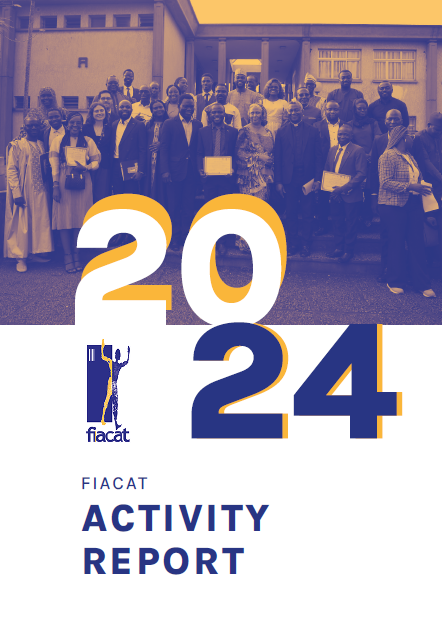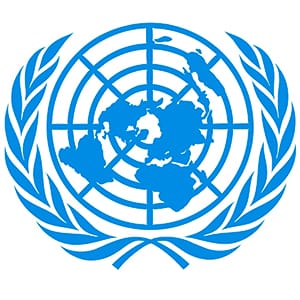FIACAT’s inputs for the Special Rapporteur on torture’s annual interim report on psychosocial dynamics conducive to torture and ill-treatment
The International Federation of ACATs, FIACAT, is an international non-governmental human rights organisation, set up in 1987, which works towards the abolition of torture and the death penalty. The Federation brings together some thirty national associations, the ACATs, present in four continents.
Through the work of its member organisations in the field, the FIACAT has documented a number of psychosocial dynamics conducive to torture and ill-treatment whether emanating from States themselves or from the population.
One of the first findings of the FIACAT and its network is the direct link between a poor administration of justice and the prevalence of acts of torture. In many countries, the justice system is plagued by numerous issues preventing it from functioning properly. Thus, corruption among judicial actors, lack of independence, insufficient resources, both human and financial, dedicated to it, and the resulting congestion of the courts are all factors which ultimately contribute to the commission of acts of torture and ill-treatment. In the face of a poor administration of justice, impunity prevails, including with regard to the perpetrators of acts of torture, who are neither prosecuted nor convicted and who mostly enjoy the support of their superiors, who often are those who ordered the commission of such acts. This impunity also has an impact on the perception of the population, which loses confidence in justice and then tends to want to take justice into its own hands, in particular by resorting to mob justice, a phenomenon against which States rarely act. When the population itself resort to such violent acts, the States might be comforted in its use of torture and feel no pressure to end this practice.
In addition, the malfunctioning of the justice system also contributes to prison overcrowding, which in turn leads to ill-treatment and even torture. Indeed, in many countries, the prison population is largely composed of detainees awaiting trial, sometimes beyond the legal time limits. Many of these detainees are completely forgotten such justice system which favour the richest to the detriment of the poorest. This prison overcrowding is also fuelled by the difficulty of reintegrating released prisoners into society. The lack of public awareness about detention and particularly about pre-trial detention means that detainees are excluded from their communities upon their release, which lead them to fall back into a cycle of criminality that results in an ever-increasing overcrowding of prisons.
The second observation made by FIACAT and its network concerns the public's perception of torture. The first problem raised concerns the public's lack of interest in the problematic of torture. In fact, in some countries, the population feels less concerned by torture and is not interested in this issue. In April 2016, FIACAT's member organisation in France, ACAT France, carried out a survey among more than 1500 people which revealed that one French person out of two did not feel concerned by the issue of torture1. This lack of interest was even more pronounced among the younger generations. The study also noted that the people interviewed had a misconception of torture was not in line with reality. The study also looked at the public acceptance of torture. The study found an increase in the public acceptance of torture in the face of the terrorist threat. While in 2000 25% of respondents accepted the use of torture in exceptional circumstances, this percentage increased to 36% in 2016. 54% of the respondents even accepted that a person suspected of planting a bomb ready to explode could be subjected to electric shocks. One of the main explanations for this percentage is that 45% of the respondents consider that torture is effective in preventing terrorist acts and obtaining reliable information, a statement that has been largely disproved by several studies. This public acceptance of the use of torture in the context of the fight against terrorism contributes to the use of torture and ill-treatment by States which thus feel legitimise in the use of such practice. For example, some countries have reintroduced the death penalty for terrorism-related offences, or introduced derogatory regimes for the custody of terrorism suspects (for example by delaying access to a lawyer, one of the fundamental safeguards for the prevention of torture).
Finally, the last observation made by the FIACAT and its network relates to the behaviour of States towards each other. Indeed, although some States, or intergovernmental organisations, are strongly committed to the fight against torture, their diplomatic mission or representation in a country may refuse to intervene on issues related to torture (for example by refusing to attend trials of human rights defenders subjected to torture or by omitting to refer to torture related issues in the context of bilateral advocacy) because of political considerations.
All of the elements presented are so many factors which favour the use of torture by a State which perceives tolerance or at least ignorance of these acts by its population or even by the international community.
In order to remedy such behaviour and combat torture more effectively, it is necessary, inter alia, to:
- Increase public awareness of the absolute prohibition of torture, the forms that this practice may take and the consequences that it entails.
- Include the absolute prohibition of torture and its means of prevention in the curricula of all actors of the penal chain as part of their initial and in-service training.
- Strengthen the judiciary in order to guarantee its independence and that the necessary resources are allocated to it, in particular in order to strengthen public confidence in the justice system.
1. ACAT France, A world of torture, 2016




